Consumer boycotts and the failure to meet 2020 #NDPE commitments have lit a fire under efforts to clean up complex palm oil supply chains in the past year. Terry Slavin talks to brands, NGOs and palm oil producers to assess the impact on critically important tropical forests and the people who live there
Big brands have found themselves in the eye of a consumer storm over their use of palm oil ever since UK retailer Iceland launched its boycott at the end of 2018, borrowing an emotive ad from a Greenpeace campaign featuring a homeless orangutan, which went viral.
More boycotts and “palm-oil free” branding spread as Instagram celebrities drew attention to what green activists had been highlighting for years: the destruction wrought by rapidly expanding global demand for the ubiquitous ingredient, found in half of all supermarket products, which has led to the precipitous decline of critical species in globally important biodiversity hotspots like Indonesia’s Leuser ecosystem.
Although booming demand from China, India and Indonesia itself for transport fuel is the main reason palm oil use is forecast to increase by up to sixfold by 2050, western brands with no-deforestation policies, including Unilever, Nestlé, Colgate-Palmolive and Mondelēz, have been in the firing line.
The Accountability Framework closes the loophole that has stymied corporate action over the past decade
Activist NGOs like Greenpeace, Rainforest Action Network and Mighty Earth point to the abject failure of 400 consumer goods companies to live up to commitments, made in 2010, to be deforestation-free by 2020 as part of No Deforestation No Peat No Exploitation (NDPE) commitments, with the CDP reporting that just under 20% of companies with commitments to source certified palm oil or establish traceability are on track to meet their 2020 targets.
Ironically, the denouncement of the Roundtable on Sustainable Palm Oil certification scheme as a “con” by Iceland’s CEO came just after the RSPO brought in sweeping new principles and criteria, adopting a total ban on deforestation, and stronger provisions for protecting high carbon stock forests, peat soils and the human rights of plantation workers, something that investors and activists had been advocating for years.
NGOs also welcomed the announcement by Wilmar International, the NGO Aidenvironment, and Unilever and Mondelēz at the end of 2018 saying they would adopt a policy of immediately suspending any suppliers linked to deforestation or peatland, followed with engagement to bring them back into compliance.

This was followed in 2019 by a muscular new approach by Consumer Goods Forum, a concerted push by brands and palm oil companies to increase traceability and monitoring, and the launch of the long-awaited Accountability Framework, a common rulebook to guide companies on fulfilling their deforestation pledges, agreed by a broad coalition of NGOs, from Greenpeace and Forest Peoples Programme to Rainforest Alliance and The Nature Conservancy.
Morgan Gillespy, director of forests at CDP, says the framework closes the “accountability loophole” that has stymied corporate action over the past decade.
Does this burst of activity add up to a course-correction that will help to turn the tide on deforestation caused by palm oil? Ethical Corporation spoke to brands, NGOs and palm oil producers to find out.
Scientific studies have concluded that boycotting palm oil would cause more environmental devastation than sustainably produced palm
A recent report from Global Canopy found that the palm oil sector is far ahead of the soy industry in combatting deforestation risk. Of the 24 palm oil companies analysed, 14 scored above 60 (out of 100), compared with only one of the nine soy companies included in its analysis.
And scientific studies produced by IUCN concluded that boycotting palm oil would cause far more environmental devastation than sustainably produced palm, given that palm oil uses up to 10 times less land to produce the same amount of oil.
But it is clear from WWF’s latest palm oil buyers scorecard, published last month, that RSPO has a huge mountain to climb to regain the confidence of brands and NGOs. Of 173 companies surveyed, only 16.3% of palm oil sourced was RSPO segregated and fully traceable, with another 27.2% certified by RSPO under the mass balance system.

Under this controversial system, a RSPO certified mill can mix palm oil from certified plantations with that sourced from uncertified third parties, leaving brands open to risk that the palm oil in their products is not free of deforestation and human rights risk.
Indeed, the decision by Unilever, cited by NGOs for its leadership on deforestation, to move to mass balance sourcing in order to pour finance into jurisdictional sourcing saw it demoted from being one of the leaders in 2016 to 22nd place in the recent WWF palm oil suppliers scorecard – though it received an A in CDP’s deforestation risk assessment.
Ignacio Gavilan, environmental sustainability director for the Consumer Goods Forum (CGF), told Ethical Corporation that the forum had made a mistake in 2010 of setting a zero-deforestation goal that was aspirational rather than binding on individual members, and dependent on certification schemes like RSPO.
It’s not acceptable they have two different supply chains: a clean one for us and corrupt one for others
“Cleaning up individual supply chains won’t drive what we need to achieve zero deforestation, even if all 400 companies succeeded,” Gavilan said. “Certification created a segmented market, so there’s still demand for commodities from converted land. It’s not acceptable they have two different supply chains: a clean one for us and corrupt one for others. We want and need a more transformative approach.”
Under a new strategy announced last September, CGF is asking companies to commit to only source from suppliers that are supplying clean supplies to all their customers. They also pledge to extend sustainable palm oil projects to smallholder farmers, who supply less than 1% of RSPO-certified palm, though they account for 40% of the total area cultivated by palm oil. (See Focus shifts to growing deforestation risk from smallholder farmers)
But he warned this will not come cheap; nor will it be easy. “The existing commodities system is a super-efficient way to move commodities around the world at a cheap price, but it was never set up to be transparent or traceable. It’s like if you fill up your tank with gasoline you don’t know if it comes from Venezuela, Alaska or Canada. Suddenly we are turning around and telling [palm oil] suppliers: we want to see the face of farmers.”
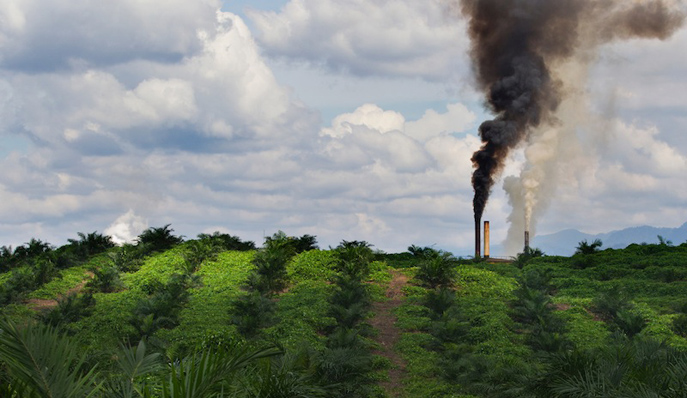
Asked how many CEOs had signed up to the new strategy, Gavilan said there had been good traction, with 30-40 expressing an interest.
One is Mars, which last year announced a major new palm oil sourcing strategy that it claims will allow it to be deforestation-free by the end of this year.
Mars, which came in fourth among manufacturers on WWF’s palm oil buyers scorecard (behind Ferrero, L’Oréal and Bahlsen of Germany) is moving from over 1,500 palm mills scattered across south east Asia to fewer than 100 by the end of 2020, with plans to reach under 20 mills by the end of 2022.
We think dramatic simplification is the only way we can guarantee that the palm oil we use is responsibly grown
Barry Parkin, chief sustainability and procurement officer at Mars, told Ethical Corporation the new approach “means we can pick the very best suppliers, who are committed to solving this. We can put due diligence in place on the ground and by satellite. … And we can be hands-on working on any [human rights] issues in palm mills and refineries.”
While sourcing certified palm is a first step, he said: “We think dramatic simplification is the only way we can guarantee that the palm oil we use is responsibly grown, doesn’t drive deforestation and has no human rights issues in it.”
Another embracing the new CGF approach is Danone, which is one of the smaller consumers of palm oil, but has played an outsized role in driving higher sustainability standards as a member of the Palm Oil Innovation Group, which was set up by a coalition of NGOs (Greenpeace, WWF, Verité, and Rainforest Action Network), producers (Agropalma, Daabon and Musim Mas), and a handful of other brands (L’Oréal, Ferrero and Barry Callebaut) to demonstrate that it was possible to produce a verified supply of deforestation-free palm oil.

But while Danone sources 100% segregated palm oil for Europe, it is using mass balance palm oil in the US for its newly acquired plant-based food company WhiteWave, due to lack of facilities to store segregated palm, and as a result ranked 11 in the WWF scorecard.
In an interview, Eric Soubeiran, Danone’s global nature, human rights and water cycle director, said Danone was “actively working with our partners in North America to have reception areas so we are in the position to offer 100% segregated palm oil …. We need to co-build solutions with partners because we are too small to do it alone.”
Nestlé, which ranked six in the scorecard, is aiming to have 100% RSPO certified – and preferably segregated – palm oil, but its target date is 2023, and in 2018 only 64% of the palm oil the company purchased was RSPO certified, and 54% of it was traceable back to plantation.
Until you reach a tipping point where the supply and demand even out, you are going to have this tension
Anna Turrell, head of sustainability at Nestlé, UK, told Ethical Corporation that there needs to be more consumer demand for fully traceable palm oil, given that segregated palm oil is more expensive to produce and source than mass balance, yet both approaches allow end-user companies to claim sustainable palm oil credentials.
“We are a mass market FMCG company, with presence in nearly every country around the world. Until you reach a tipping point where the supply and demand even out, you are going to have this tension.”
Indeed, palm oil producers can only find buyers for a little over half the RSPO certified palm oil they produce, with the rest sold into the uncertified market, according to Anita Neville, who is head of communications and sustainability relations at Singapore-based Golden Agri-Resources, a major RSPO-certified supplier for brands including Unilever, Mars, and Nestlé. “There have been no new grower members in the RSPO for six years,” she said in a recent podcast interview.
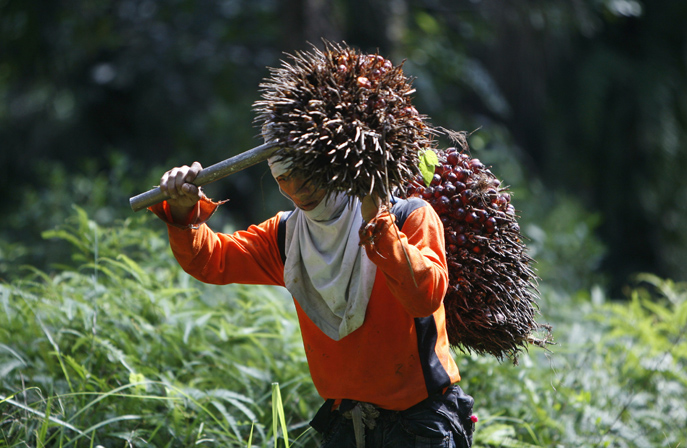
At RSPO's annual meeting last November, she said, the CGF committed its members to increase their purchases of RSPO-certified oil by 15%, but in her meetings with buyers, none were talking about certification, “but about traceability and transparency, better sharing of concession maps and the role of technology” in reducing deforestation risk.
Brands like Unilever, Mars and Nestlé have invested in new satellite technologies and collaborative partnerships to monitor deforestation events in the 50km radius of the mills that supply them (see Eyes in the skies: The push to beef up palm oil surveillance)
They have also committed to greater transparency by publishing lists of suppliers, including those dropped for non-compliance, on their websites.
We are still seeing impact from expansion in tropical rainforests across the planet
In interviews with Ethical Corporation, experts from Mighty Earth and Rainforest Action Network welcomed the new RSPO standard and moves to greater monitoring and supply-chain collaboration over 2019, but said head office commitments are not yet turning the tide on deforestation on the ground.
Gemma Tillack, forest policy director at Rainforest Action Network, said while a number of companies have designed strategies and systems to accelerate their understanding of what’s happening in their palm oil supply chains, those risks remain largely unaddressed.
“We are still seeing impact from expansion in tropical rainforests across the planet, including in Indonesia, and increasingly into new forest regions in Papua [New Guinea], in central West Africa and Latin America.”
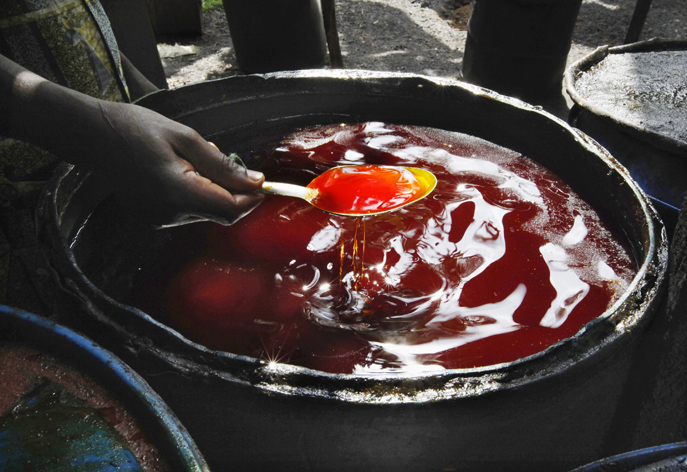
Tillack said only companies, like Ferrero, that are sourcing 100% segregated palm oil can be free of deforestation and human rights risk, and outside of Europe traders like Wilmar, GAR and Bunge are not investing in segregation at the refinery and holding tank level.
“That’s a huge barrier to sustainable palm oil and the reason Danone’s palm oil isn’t 100% responsibly sourced,” she said.
RAN began to map palm oil plantations in the Leuser ecosystem in Indonesia a year ago, using satellite images and interviews on the ground, and last year alleged that GAR and Indonesia’s Musim Mas Group had bought oil from two mills that sourced palm fruit from an illegal plantation in the protected Rawa Singkil Wildlife Reserve in the Leuser, dubbed the “orangutan capital of the world”.
Palm oil is a notoriously complex and convoluted supply chain made up of many, many actors
GAR, which achieved an A- in CDP’s recent ranking of companies on deforestation risk, said in a statement that its own investigations showed that palm fruit from the two mills had not entered its supply chain. In the podcast, Neville said GAR was about 70% of the way to achieving traceability to plantation, and was actively working to achieve 100% by the end of the year.
But she said palm oil is a “notoriously complex and convoluted supply chain made up of many, many actors.”
Instead of dropping suppliers, she said, the focus should be on incentivising and helping them to manage their land appropriately and to achieve better livelihoods. “None of the environmental and social issues are achievable if we don’t also have a good economic foundation for the various actors in the supply chain.”
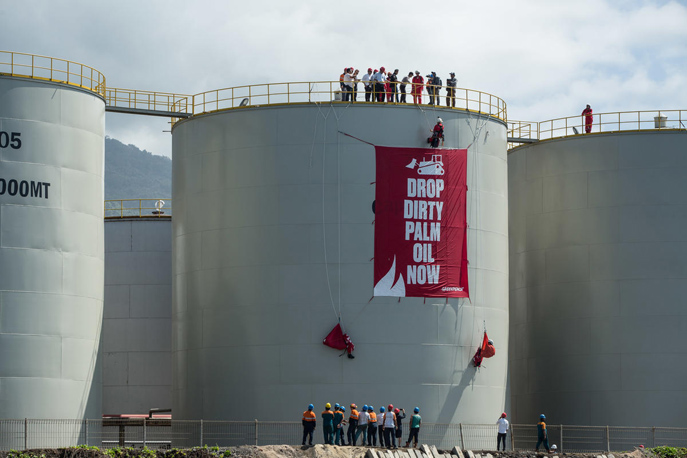
Asked about Mars’ move to simplify its palm oil supply chain, Tillack praised the work Mars and Unilever are doing with the NGO Aidenvironment to monitor that major suppliers are tackling deforestation risk at the group level. But she said Mars was still associated with deforestation in the Leuser.
And though it was avoiding some risks by sourcing mainly from RSPO-certified industrial plantations, she said such plantations recruit large volumes of international workers,and there is a high risk of indentured labour and other labour abuses, something documented by RAN and Amnesty International.
While RSPO’s new standard includes strong measures to protect workers, including bans on withholding passports, child labour and payment of a living wage, Tillack said she has little confidence these will be enforced without reforms to RSPO’s auditing process, which allows companies to recruit their own auditors.
We want to make sure traders are doing a proper job and setting precedents that could be used by the rest of the industry
She said auditors had failed to identify grevious labour violations at a subsidiary of palm oil giant Indofood, which were only revealed in 2016 after complaints by RAN and other labour rights organisations led to independent investigations and the eventual suspension of the company from the RSPO. “The RSPO isn’t a reliable proxy for labour compliance,” said Tillack.
Phil Aikman, campaign director of US-based Mighty Earth, said the RSPO’s new standard is good on paper, particularly in its adoption of the high carbon stock approach to defining land use, and the Accountancy Framework has “useful aspects” in steering brands in how to implement their NDPE policies. “But the nitty gritty is in the detail of how you operationalise these things.”
Mighty Earth convenes the Sunderland Process, an informal grouping that includes Unilever and producers and traders like GAR, Wilmar, Sime Darby, Bunge and Musim Mas, along with implementing NGOs Earthworm and Proforest. The group is using high-profile test cases to try to establish benchmarks on handling issues such as grievance mechanisms, peatland development, remediation of deforested land, and the re-engagement of struck off suppliers, one of the areas of greatest contention.
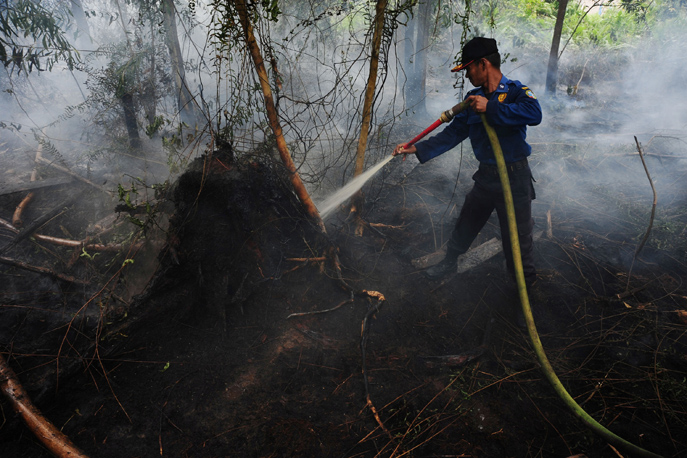
“We want to make sure that traders are doing a proper job and setting precedents that could be used by the rest of the industry to deliver the goods,” Aikman said. “It won’t happen without NGOs and implementing agencies like Proforest. We are not going to let the traders do it on their own. There needs to be policing.”
Mighty Earth has a rapid response monitoring system, which uses traders’ mill lists, supply chain information and satellite imagery to monitor 3,500 oil palm concessions in Indonesia and Malaysia.
While there are fewer cases of large-scale deforestation in Indonesia, Aikman said, “there is still a lot of deforestation taking place on a smaller scale. We are still finding cases every month … and that is only in the concessions we have access to.”
It is hard to get the palm oil industry to agree on anything collectively
The biggest challenge is to track deforestation from smallholder farmers, which are selling fresh fruit bunches to middlemen supplying the same RSPO certified mills that are producing mass-balance palm oil. “I don’t think a lot of traders have systems in place to map and avoid that risk from smallholders.” While GAR is making efforts to do that, “they need to engage with smallholders early on.”
Aikman said one challenge is that players in the palm oil industry are less interested in the type of collaboration that resulted on the moratorium on soy exploitation in the Amazon. “It is hard to get the palm oil industry to agree on anything collectively …. It’s forced the likes of Mars to come up with their own strategy to manage the risk.”
While there’s been a decrease in deforestation in Indonesia for the past couple of years because of depressed prices, restrictions on permits to large companies, and NDPE policies set by the government, NGOs worry about the growing market for palm oil with no sustainability criteria, driven by booming demand from India and China, and the Indonesian government’s mandating the higher percentages of palm oil in transport fuels. Tillack points out that in India alone, Wilmar is building four new palm oil refineries and another one on Java in response to the biofuel boom.
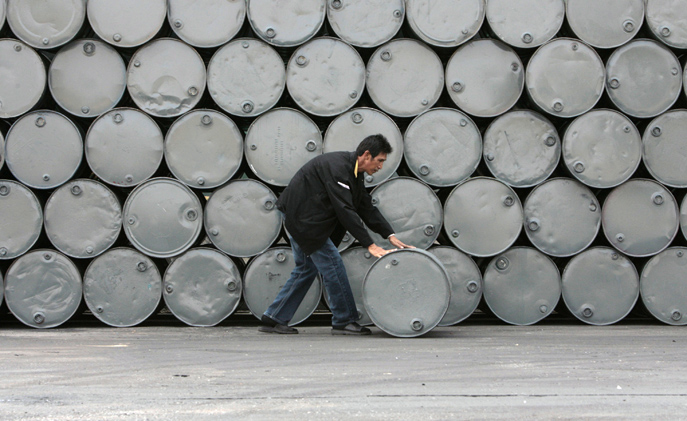
David Cleary, director of global agriculture at The Nature Conservancy, says while the tier of the palm oil market supplying the EU now meets a gold standard, with occasional lapses, the uncertified second tier of the market is already bigger, and growing at a frightening pace.
“Certification is never going to work for them, so you need ways to generate financial solutions for producers to move in a zero-deforestation direction,” he said. “These solutions don’t exist right now, but it is going to be critical over the next 10 years for these to be developed. We need to be able to get to systems-level change.”
Neville of GAR said the Iceland boycott had been damaging to companies producing sustainable palm oil, but she sees “green shoots of hope”, with social media conversations starting to be more positive about palm oil.
“The way I see it, palm oil sustainability is a work in progress. That work needs encouragement through positive purchasing power. There is no perfect solution here, just a commitment to everyday striving to do better and help more and more players in the industry take the right steps – especially smallholders and their families who are most disadvantaged by the blunt instruments that boycotts represent.”
This article is part of our in-depth Palm Oil briefing, see also:
Fighting fire with incomes as focus shifts to helping smallholder farmers grow palm oil
Eyes in the skies: The push to beef up surveillance of palm oil plantations
‘To curb deforestation in the long-term, break the link between politics and palm oil’
Iceland Greenpeace Unilever Rainforest Action Network Mighty Earth NDPE TNC Wilmar Aidenvironment CDP< Consumer Goods Forum Accountability Framework Rainforest Alliance Golden-Agri Resources RSPO Global Canopy WWF
